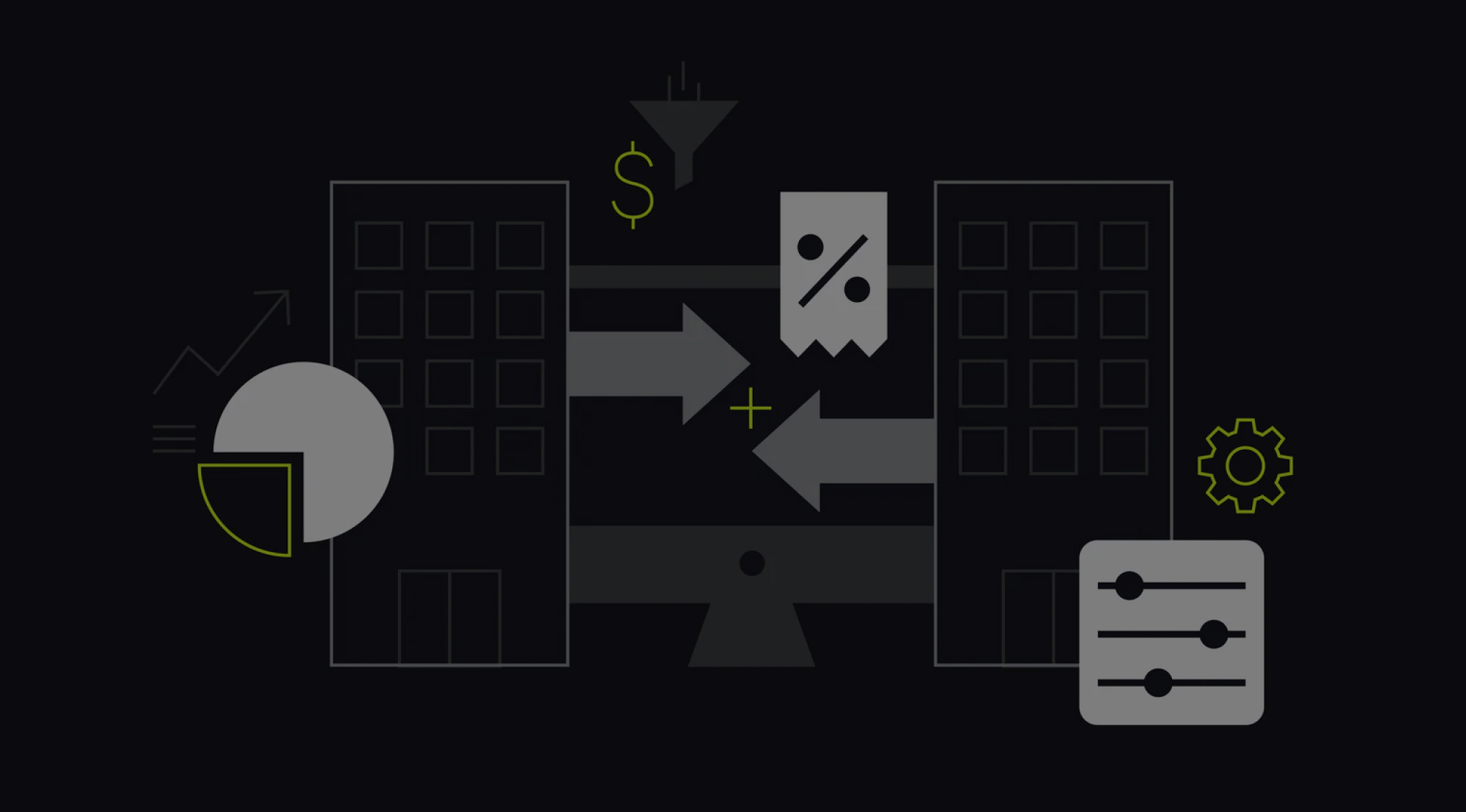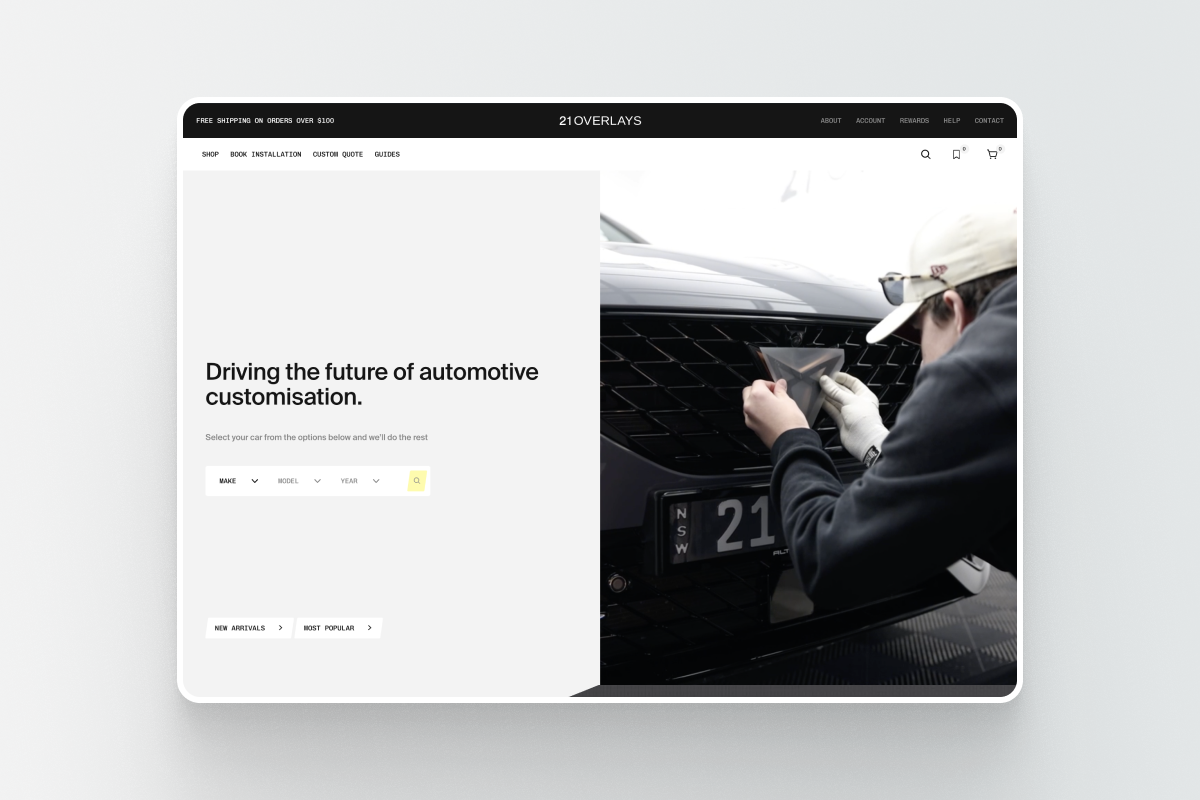The Transformation of B2B Commerce
B2B commerce is evolving rapidly, with businesses seeking platforms that can handle their complex needs while delivering a seamless experience to their customers. At Process Creative, we’ve had the privilege of building B2B eCommerce sites for some of Australia’s leading brands, including The Oodie, Snuggle Hunny, Cygnett, Tropeaka, SMAI, and more. These brands trust us to create robust, flexible, and highly customisable platforms that drive growth and efficiency.
Imagine a mid-sized wholesaler dealing with thousands of SKUs and hundreds of clients, each with different pricing structures and payment terms. Managing these complexities on an outdated platform not only slows down operations but also frustrates customers. This is where Shopify steps in, offering a platform that simplifies these processes, improves customer satisfaction, and ultimately drives growth.
What Makes Shopify the Best Choice for B2B?
Shopify’s B2B capabilities are designed to address the specific needs of business-to-business transactions. From flexible payment options to advanced customisation and efficient product management, Shopify provides everything a B2B business needs to thrive in a competitive market.
Key Features That Matter Most to B2B Companies
1. Quantity Breaks: Pricing That Scales
One of the most critical features for B2B companies is the ability to offer quantity breaks—tiered pricing that gives customers a discount for buying in bulk. This feature is essential for wholesalers and distributors who rely on volume sales. Shopify allows you to set up quantity breaks easily, ensuring that your customers are incentivised to purchase more without manual adjustments. This automated system not only saves time but also enhances the customer experience by providing transparent and predictable pricing.
For instance, a company selling industrial supplies might offer a 5% discount for orders of 100 units or more and a 10% discount for 500 units or more. With Shopify, these quantity breaks can be set up directly within the platform, ensuring that customers see their discounted pricing as they shop, which can significantly increase order value.
2. Tailored Customer Experience: Product Listing Pages for B2B
The way products are displayed and purchased in a B2B environment can differ significantly from B2C, depending on the nature of the business and customer preferences. While consumer-facing stores often rely on visually rich content and individual product pages to engage shoppers, many B2B customers prefer a more functional, streamlined approach—particularly when it comes to the Product Listing Page (PLP) or Collection Page.
For many B2B merchants, the ability to list products in a row-like structure on the PLP almost like an interactive, user-friendly spreadsheet is invaluable. This layout allows customers to view multiple products at once and add them to their cart without having to navigate back and forth between the PLP and individual Product Detail Pages (PDPs). Shopify supports this type of user experience by offering customisation options for the PLP to meet the specific needs of B2B businesses.
For example, a business that sells automotive parts might offer hundreds of small, related products. Their customers, who often purchase in bulk, can benefit greatly from a PLP that lists all relevant products with key details like SKU, price, and quantity available. This setup allows them to quickly add multiple items to their cart and complete their purchase in one go. However, it’s important to note that this approach might not suit every B2B merchant—those who sell more complex or high-value products might still prefer a detailed, content-rich PDP experience for each item.
3. Search Functionality: Prioritising Speed and Efficiency
In B2B commerce, time is often of the essence. Customers don’t want to sift through pages of content to find what they need. Instead, they value quick, efficient search capabilities, especially when they know exactly what they’re looking for, often by SKU code.
Shopify’s native search functionality is reasonably robust, enabling customers to find products quickly using SKUs or other specific identifiers. Additionally, the platform’s filtering options allow users to narrow down results based on various criteria like price, availability, or product specifications.
This not only speeds up the purchasing process but also improves customer satisfaction by making it easy to find and buy exactly what they need.
Consider a scenario where a restaurant supply company is ordering bulk kitchen equipment. Their purchasing manager doesn’t need branded content or detailed product descriptions; they need to quickly search by SKU, check availability, and place their order. Shopify’s search and filtering capabilities make this process seamless and efficient.
4. Flexible Payment Options: Meeting the Unique Needs of B2B
Payment flexibility is another area where B2B businesses have different requirements from B2C. While consumers typically pay immediately via credit card or digital wallets, B2B transactions often involve more complex payment terms, such as Net 30, pay via account, or even repurchasing the last order with a few clicks.
Shopify’s payment options are designed with these needs in mind. Businesses can offer Net 30 terms, allowing customers to pay within 30 days of receiving their invoice, or set up accounts where clients can place orders on credit. Additionally, Shopify’s Draft Orders feature allows companies to create custom invoices for specific orders, making it easy to manage unique payment arrangements.
For instance, a printing company may have longstanding customers who order regularly but prefer to be billed monthly. With Shopify, this business can set up payment terms that reflect this relationship, simplifying the process for both parties and ensuring a steady cash flow.
5. Customisable Pricing and Products: Tailoring Offers to Each Customer
B2B companies often have complex pricing models, where different customers receive different prices based on factors like order volume, contract terms, or customer loyalty. Shopify excels in this area, allowing businesses to create custom pricing rules for each customer or group of customers.
This means you can set up specific price lists for your top-tier customers, offer exclusive discounts to long-term partners, or adjust pricing based on the customer’s location or industry. Shopify’s flexibility in pricing ensures that every customer sees the most relevant prices, helping to build stronger relationships and encourage repeat business.
Moreover, Shopify allows businesses to customise product offerings on a per-customer basis. This is particularly useful for companies that deal with large, varied inventories where not all products are relevant to every customer. By curating the product selection for each client, you can simplify the shopping experience and make it easier for customers to find what they need.
The Financial Benefits of Shopify for B2B
Beyond the functionality, Shopify’s B2B platform also delivers significant financial benefits. By automating processes like order management, pricing, and customer service, businesses can reduce operational costs and focus more on growth. Additionally, the platform’s scalability ensures that as your business grows, Shopify can grow with you, handling increased traffic and order volumes without a hitch.
For example, businesses that switch to Shopify for their B2B needs often report a 15% reduction in operational costs and a 20% increase in revenue within the first year. These savings are driven by the platform’s ability to streamline complex processes, reduce errors, and improve the overall customer experience.
Real-World Success: How Top Brands Are Thriving with Shopify B2B
Major brands like Kraft Heinz, Brooklinen, and Signet have already seen the benefits of moving their B2B operations to Shopify. Since Shopify launched its B2B features, these companies have experienced significant growth, with some reporting a 130% increase in B2B sales within a year. Shopify’s ability to transform complex B2B operations into seamless, efficient processes is a key reason why these brands continue to invest in the platform.
Partnering with Process Creative: Your Shopify B2B Experts
At Process Creative, we understand the unique challenges of B2B commerce. With over 15 years of experience, we specialise in crafting tailored e-commerce solutions that not only meet but exceed your business needs. Our approach goes beyond aesthetics, focusing on strategy, growth, and long-term success.
Whether you’re looking to build a new B2B store from the ground up or optimise your existing platform, our team is here to help. We offer custom solutions designed to drive exponential growth and create seamless, frictionless experiences for your customers.
Ready to Elevate Your B2B Operations?
As Australia’s leading Shopify agency, we’re ready to help you transform your online presence and achieve new levels of success. Contact us for a free discovery call and see how we can help you unlock the full potential of Shopify B2B.






